kosher dill pickle mix instructions
- by gage
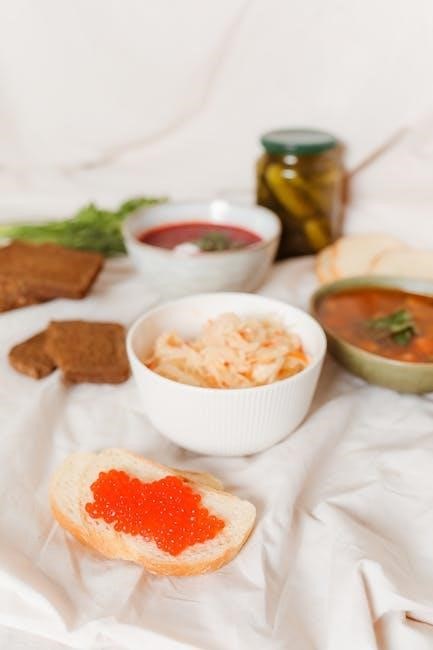
Discover how to craft authentic kosher dill pickles with ease using a specially designed mix. This blend simplifies the pickling process, ensuring crisp, flavorful results every time.
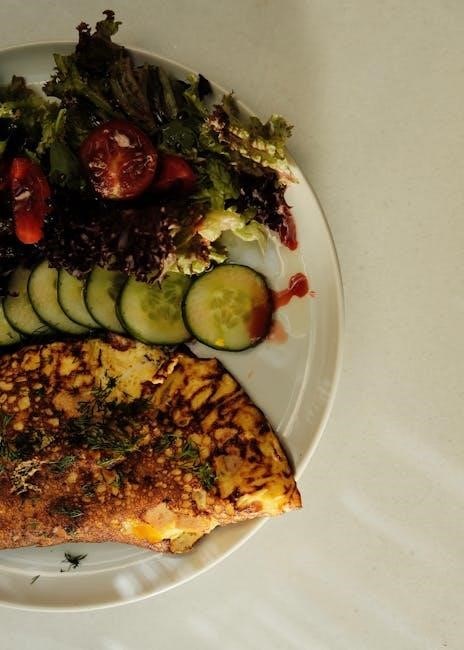
Ingredients Required for Kosher Dill Pickles
Essential ingredients include pickling cucumbers, water, white vinegar, and kosher dill pickle mix. Optional additions are garlic, pickling salt, and fresh or dried dill weed.
Essential Components of the Pickle Mix
The core of a kosher dill pickle mix includes kosher salt, garlic, and dill weed or seeds for authentic flavor. Additional components may feature mustard seeds, coriander, and turmeric for color. These ingredients ensure a balanced tangy, salty, and aromatic profile, essential for traditional kosher dill pickles. The mix simplifies the process by pre-blending these spices, guaranteeing consistent flavor in every batch. Proper proportions of each component are crucial for achieving the desired taste and texture.
Additional Ingredients for Enhanced Flavor
For extra depth, consider adding garlic cloves, red pepper flakes, or fresh dill weed to your pickle mix. These ingredients enhance the classic dill flavor and add a touch of heat or freshness. Some recipes also include mustard seeds for a slightly tangy note. These additions are optional but can elevate your pickles to the next level, offering a more complex and delicious taste experience tailored to your preferences. Experiment wisely to find your perfect blend.
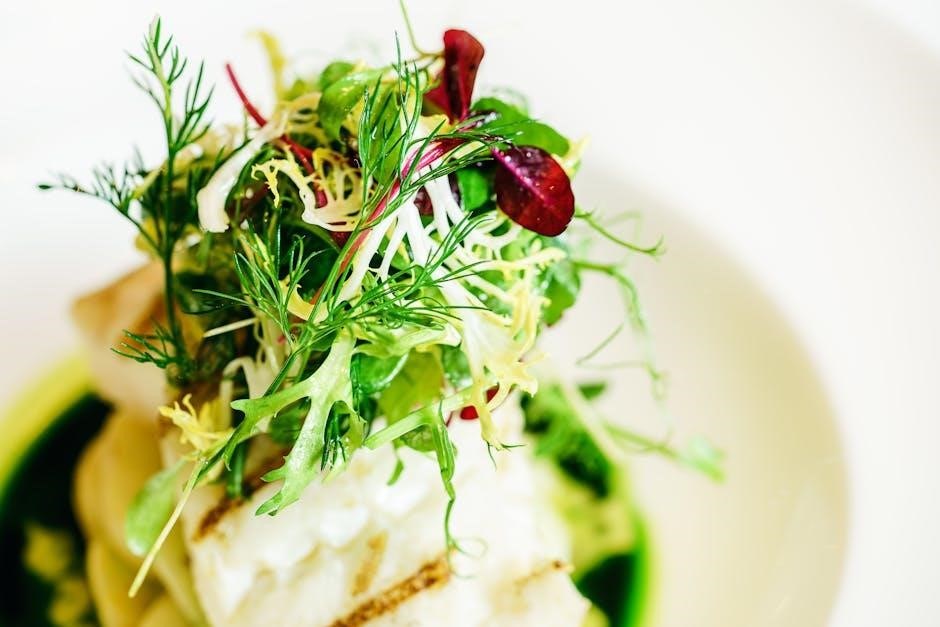
Equipment Needed for Pickling
Canning jars, lids, and bands are essential for storing pickles. A large pot for boiling water, utensils like tongs and ladles, and a clean workspace are also necessary.
Canning Jars and Lids
Use sterilized quart or pint-sized canning jars with tight-fitting lids and bands. Ensure jars are hot and ready for filling by following manufacturer sterilization instructions. Prepare jars according to the pickling process, whether for immediate refrigeration or long-term storage. Properly sealed jars ensure pickles remain fresh and shelf-stable, preventing spoilage and maintaining flavor. Always follow safe canning practices to avoid contamination and ensure the best results for your homemade pickles.
Cooking Utensils and Pots
Use a large pot for boiling the brine and a medium saucepan for mixing the pickle blend with water and vinegar. A non-reactive pot, such as stainless steel or enamel-coated, is ideal to prevent metal reactions. Essential utensils include a wooden spoon for stirring, a ladle for pouring the hot liquid, and a slotted spoon or tongs for handling cucumbers; Ensure all tools are clean and sterilized before use.
Other Essential Tools
Additional tools are crucial for a smooth pickling process. A jar lifter is necessary for safely moving hot jars. Tongs or a slotted spoon help place cucumbers into jars. Measuring cups and spoons ensure accurate brine preparation. Acid-resistant utensils prevent reactions with vinegar. A clean, lint-free towel and a wire rack are handy for cooling jars. These tools collectively ensure efficiency and safety while making kosher dill pickles at home.
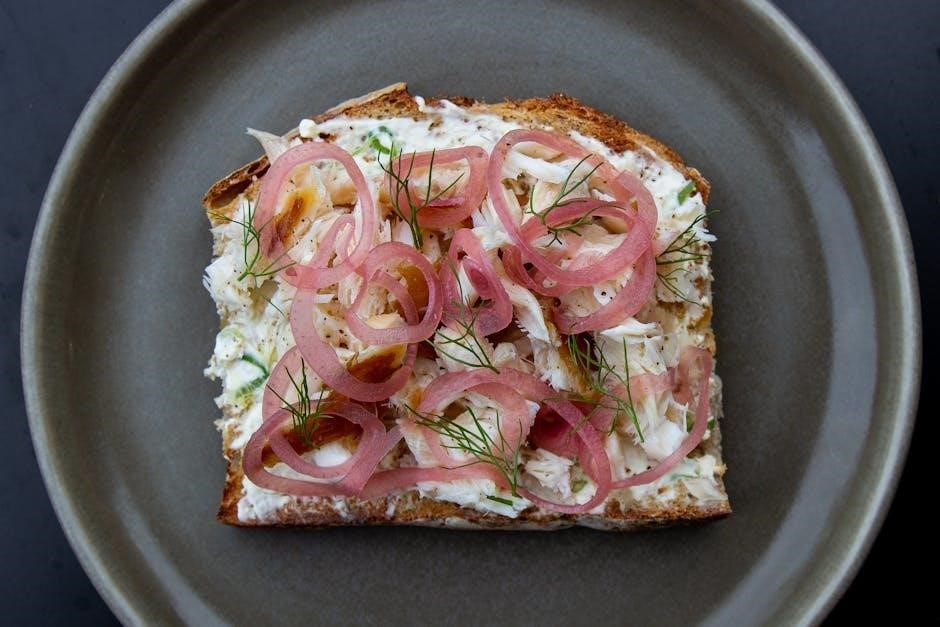
Step-by-Step Instructions for Making Kosher Dill Pickles
Follow a detailed process: prepare cucumbers, create brine, pack jars, and seal tightly. Each step ensures crisp, flavorful pickles with a perfect balance of tang and dill.
Preparing the Cucumbers
Start by washing the cucumbers thoroughly and trimming both ends. Cut off the blossom end to remove excess moisture and bitterness. For spears, slice the cucumbers lengthwise into quarters or halves, depending on size. If desired, leave them whole or slice into rounds. Ensure all pieces are uniform for even pickling. Pat dry with a clean towel to prevent excess moisture during the pickling process.
Creating the Brine
In a medium saucepan, combine water, white vinegar, and the kosher dill pickle mix. Stir until the mix dissolves completely. Bring the mixture to a boil over medium heat, ensuring it’s well-mixed. Reduce the heat to a simmer and let it cook for a few minutes until the brine is hot and flavorful. This step ensures the pickles will be crisp and tangy with the perfect balance of spices.
Packing the Jars
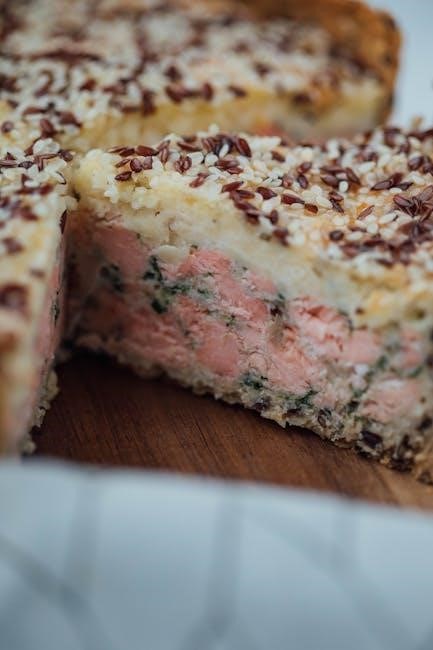
Once the brine is ready, place dill sprigs, garlic cloves, and mustard seeds at the bottom of each hot, sterilized jar. Pack the cucumber spears or slices tightly, leaving about 1 inch of space at the top. Carefully pour the hot brine over the cucumbers, ensuring all are covered. Remove any air bubbles and wipe the rims clean before securing the lids tightly for proper sealing and processing.
Sealing and Processing the Jars
After packing, remove any air bubbles by gently tapping the jar or using a non-metallic utensil. Secure the lids and bands tightly, ensuring a proper seal. Process the jars in a boiling water bath for 10-15 minutes, adjusting for altitude if necessary. Allow the jars to cool at room temperature before storing. This step ensures the pickles are shelf-stable and safely preserved for long-term enjoyment.
Safety Tips for Home Canning
Ensure all jars and utensils are sterilized to prevent spoilage. Follow tested recipes and guidelines for safe acidity levels to avoid contamination and foodborne illness risks.
Understanding Proper Sterilization
Proper sterilization is crucial for safe home canning. Wash hands thoroughly with soap and water. Sterilize jars, lids, and utensils in boiling water or a dishwasher. Ensure all equipment is clean and free from contaminants before use. Maintaining a clean environment prevents spoilage and ensures pickles are safe to eat. Always follow tested canning guidelines for optimal results and food safety.
Ensuring Correct Sealing Techniques
Proper sealing ensures jars are airtight and prevent spoilage. Place sterilized lids and rings on jars, tightening until resistance is met. Avoid over-tightening, as this can hinder sealing. Use a clean utensil to remove air bubbles and ensure even pressure. Listen for the “pop” sound as jars seal. Check lids after cooling; they should not move when pressed. Store sealed jars in a cool, dark place for optimal preservation.
Storing Your Homemade Pickles
Store homemade pickles in the refrigerator to maintain crispness and flavor. They will keep for several months. For longer storage, consider freezing options, which are discussed separately. Always keep pickles away from strong-smelling foods to avoid flavor transfer;
Refrigeration and Shelf Life
Store homemade kosher dill pickles in the refrigerator to maintain their crunch and flavor. They will typically last for several months when kept chilled. For best results, transfer pickles to an airtight container or leave them sealed in their jars. Ensure the pickles are completely cooled before refrigeration to prevent condensation, which can soften them. Properly stored pickles retain their tangy flavor and crisp texture for up to 6 months. Always keep them away from strong-smelling foods to avoid odor absorption.
Freezing Options
For long-term preservation, kosher dill pickles can be frozen. Slice or spear the pickles and place them in airtight containers or freezer bags, ensuring no air is trapped. Frozen pickles are best used within 8-10 months for optimal flavor and texture. Note that freezing may soften pickles slightly, so they’re ideal for cooking or blending into sauces rather than serving fresh. This method is convenient for preserving large batches year-round.
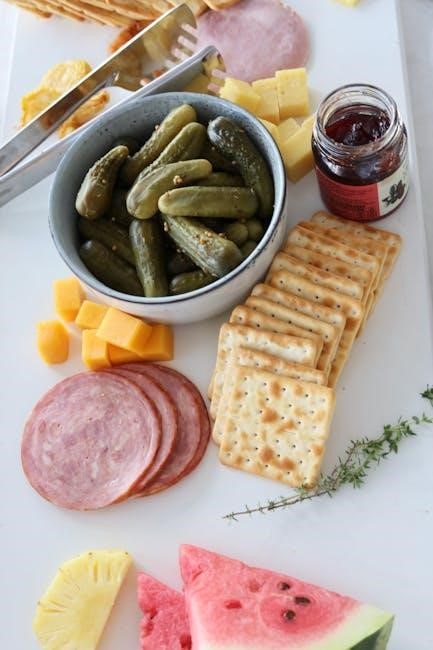
Customization Ideas for Your Pickle Recipe
Elevate your pickles by adding garlic, mustard seeds, or fresh dill for extra flavor. Experiment with different vinegars or spices to create a unique taste profile that suits your preferences.
Adding Garlic or Spices
Enhance your pickles by incorporating garlic or spices for added depth. Add 1-2 garlic cloves per jar or mix in black peppercorns, mustard seeds, or dill sprigs for a personalized touch. Adjust spice amounts to suit your taste, and consider adding optional ingredients like red pepper flakes for a spicy kick. This customization allows you to create a flavor profile that aligns with your preferences while maintaining the classic dill pickle essence.
Experimenting with Different Vinegars
Explore various vinegars to add unique twists to your pickles. White vinegar is traditional, but apple cider vinegar offers a sweeter tang, while white wine vinegar provides a lighter, fruitier flavor. For a richer taste, balsamic vinegar adds depth, and rice vinegar creates a milder, subtler profile. Each vinegar type enhances the brine differently, allowing you to tailor the flavor to your liking while maintaining the classic dill pickle character.
Troubleshooting Common Issues
Address common challenges like soft pickles or mold by ensuring proper sterilization, correct brine ratios, and tight sealing. Always follow safety guidelines for best results.
Dealing with Soft Pickles
Soft pickles can result from insufficient salt, improper brine strength, or inadequate pickling time. Ensure the mix is fully dissolved and maintain the recommended ratio of water to vinegar. Allow pickles to ferment longer if needed, checking periodically for crispness. For refrigerator pickles, let them chill for at least 2 weeks before serving. Always use fresh, firm cucumbers for the best texture.
Addressing Mold or Spoilage
If mold or spoilage occurs, immediately discard the affected jar to prevent contamination. Ensure proper sterilization of jars and utensils before use. Always follow safe canning practices, including correct sealing techniques. Store pickles in a cool, dark place and check regularly. Mold typically indicates improper brine strength or contamination during processing. For best results, use fresh ingredients and maintain clean equipment throughout the pickling process.

Serving Suggestions for Kosher Dill Pickles
Kosher dill pickles add a tangy crunch as a side dish or topping for sandwiches. Use them in salads, burgers, or as a fresh snack for enhanced flavor.
Using Pickles as a Side Dish
Kosher dill pickles make a perfect side dish, offering a refreshing contrast to rich meals. Serve them alongside sandwiches, grilled meats, or as a tangy complement to classic dishes like burgers or hot dogs. Their crisp texture and flavorful zing enhance any plate, making them a versatile and delicious addition to various cuisines.
Incorporating Pickles into Recipes
Kosher dill pickles add a burst of flavor and crunch to various recipes. Use them in relishes for hot dogs or sauces for a tangy twist. Slice them thin for sandwiches or salads, or as a topping for burgers. They also make a great ingredient in snacks like dill pickle chips, enhancing flavor and texture. Incorporate pickles into your cooking for a delicious and versatile culinary experience.
Creating homemade kosher dill pickles with a mix is a straightforward and rewarding process. By following the instructions and using quality ingredients, you can enjoy crisp, flavorful pickles tailored to your taste. Whether served as a side or incorporated into recipes, these pickles offer a delicious and versatile addition to any meal. Embrace the simplicity of the mix and savor the satisfaction of homemade pickles all year round!
Related posts:
Learn how to make delicious kosher dill pickles with our easy-to-follow mix instructions. Perfect for homemade pickling!
Posted in Instructions